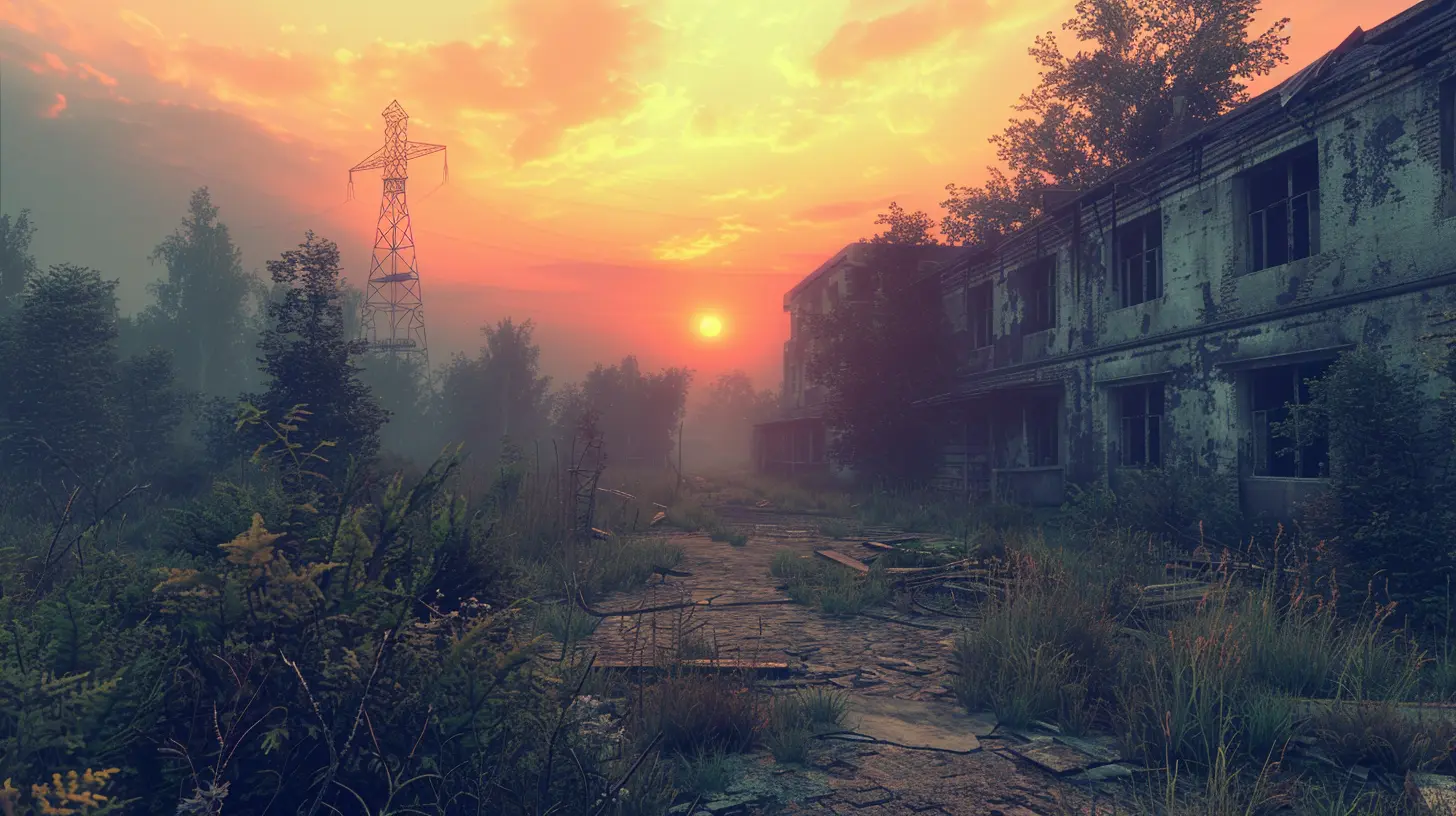5 March 2025
Imagine this: you’re sitting at your desk, building an empire in The Sims, managing a bustling city in Cities: Skylines, or perfecting your farm in Stardew Valley. Hours fly by as you carefully balance resources, make decisions, and navigate challenges. It feels like just a game, right? But hold on—could these virtual worlds be teaching us something about the real one? Spoiler alert: they absolutely are.
Simulation games go beyond entertainment. They mirror reality in surprisingly profound ways, giving us lessons and insights into life, society, and even ourselves. So, let’s take a cheerful deep dive into how these pixelated worlds hold up a mirror to our own lives. Ready to level up your understanding?

What Are Simulation Games, Really?
Before we dive in, let’s start with the basics. Simulation games are all about re-creating real-world activities, systems, or experiences in a virtual environment. They let you do everything from running a theme park to simulating medieval village life. Think of them as a digital sandbox where your decisions drive the outcome.But here’s the kicker: while a lot of us play games to escape reality, simulation games often bring us closer to it. They replicate everything from mundane daily chores to complex global systems. And whether you’re aware of it or not, these games can leave you with some pretty valuable life lessons tucked away in your inventory.
Life Lessons Straight Out of a Game
Let’s break it down. Simulation games may look like harmless fun, but they teach us skills and lessons that apply way beyond your screen. And nope, you don’t need VR goggles to see how they relate to reality.1. Time Management: Every Tick Matters
Ever tried to juggle everything in The Sims? You’re cooking breakfast, rushing to work, trying to socialize, and squeezing in some exercise—all while avoiding a kitchen fire. Sound familiar? It’s eerily close to real life, isn’t it?Simulation games teach you to prioritize. You'll quickly realize you can’t do everything at once (unless you’ve got cheat codes, but those don’t exist IRL). Time is a finite resource, and managing it effectively is crucial both in-game and out. Forget to water your crops in Stardew Valley? You’ll face wilted plants and plummeting profits. Forget to pay a bill in real life? Same vibes, just with a late fee.
2. The Value of Hard Work and Patience
Rome wasn’t built in a day, and your Cities: Skylines metropolis won’t be either. Simulation games don’t reward instant gratification. Instead, they demand effort, patience, and planning to achieve long-term satisfaction.Take Animal Crossing, for example. Building your dream island takes time, resources, and a good dose of creativity. You learn to appreciate the slow grind—a lesson that translates nicely to the real world. Whether it’s learning a new skill, building relationships, or saving money, patience makes the reward sweeter, doesn’t it?
3. Financial Literacy: Play Money, Real Lessons
If you’ve ever tried running a city in SimCity, you’ve already had a crash course in budgeting. Balancing the books, funding essential services, and avoiding bankruptcy are key in the game—and guess what? That’s life 101.Simulation games simplify complex financial systems, making them easier to understand and less intimidating. They teach you the importance of allocating resources wisely, saving for a rainy day, and not overextending yourself. Spend recklessly, and your virtual world collapses. Sound familiar? Exactly.
4. Problem-Solving: Challenges Build Character
Life throws curveballs, and so do simulation games. A tornado hits your city in SimCity. A drought ruins your crops in Farming Simulator. Or maybe your Sims character gets stuck in an emotional spiral because they didn’t take a shower or get enough social interaction. (Who hasn’t been there?)These scenarios push you to think on your feet. When things go sideways, you learn to adapt, troubleshoot, and find solutions. Over time, you get better at handling challenges calmly and creatively, both in the game and in real life. It’s like strength training for your brain.
5. Empathy and Understanding Other Perspectives
Some simulation games, like Papers, Please or This War of Mine, go deeper by immersing you in the lives of others. These games make you walk a mile in someone else’s shoes—sometimes in very difficult or morally complex situations.Playing as a border control officer or surviving in a warzone might make you uncomfortable, but that’s the point. These games teach empathy by showing you a perspective you might never experience otherwise. They remind us that everyone has a story, and that understanding is a two-way street.
6. Environmental Awareness: Nature Matters
Games like Planet Zoo or Eco put environmental issues front and center. They teach you the delicate balance between growth and sustainability. Want to succeed? You’ll need to think about conservation, waste management, and renewable energy—just like in real life.It’s eye-opening to see how your choices impact the virtual world. Whether it’s protecting wildlife, managing pollution, or creating green energy, these lessons leave a lasting impression. Who knew a game could make you rethink how you sort your recyclables?
The Real-World Impact of Simulation Games
So, why do these lessons matter? Because they stick with you, even after you’ve logged out. Whether you’re managing your time, balancing your budget, or approaching a problem with a fresh perspective, the skills picked up in simulation games make you better equipped to handle real-life situations.It’s not just about personal growth, either. Simulation games have been used in fields like education, healthcare, and even military training. For example, flight simulators help pilots hone their skills, and Kerbal Space Program teaches aerospace engineering concepts. These games aren’t just for fun—they’re tools for growth.
Why We Can't Get Enough of Simulation Games
Let’s face it: life can be chaotic, unpredictable, and downright exhausting. Simulation games offer a safe space to experiment, learn, and even fail without real-life consequences. They give us control in a world that often feels uncontrollable. Plus, they’re just plain fun! Who doesn’t love designing an over-the-top mansion in The Sims or creating a thriving farm in Stardew Valley?And let’s not ignore the social aspect. Many simulation games, like Second Life or Minecraft, allow us to connect with others in unique ways. They’re not just games; they’re communities where we can share experiences, ideas, and maybe even a laugh or two.
Wrapping It Up: From Pixels to Practicality
At the end of the day, simulation games are more than just a way to kill time. They’re digital mirrors that reflect real-world challenges, opportunities, and lessons. They teach us to manage our time, make thoughtful decisions, empathize with others, and appreciate the beauty of patience and hard work.So, the next time someone asks, “Why are you wasting time on that game?” you can proudly answer, “I’m learning life skills, thank you very much!” And you won’t even be lying.
Now, go ahead—boot up your favorite simulation game and let the lessons continue. Because sometimes, the best teacher is the one that disguises itself as pure, joyful escapism.








Merida McCaw
Simulation games serve as effective mirrors to real-life scenarios, allowing players to experiment with complex systems and make decisions in a risk-free environment. By reflecting social dynamics, economic strategies, and ethical dilemmas, these games can enhance our understanding of real-world challenges and relationships.
April 5, 2025 at 2:45 PM